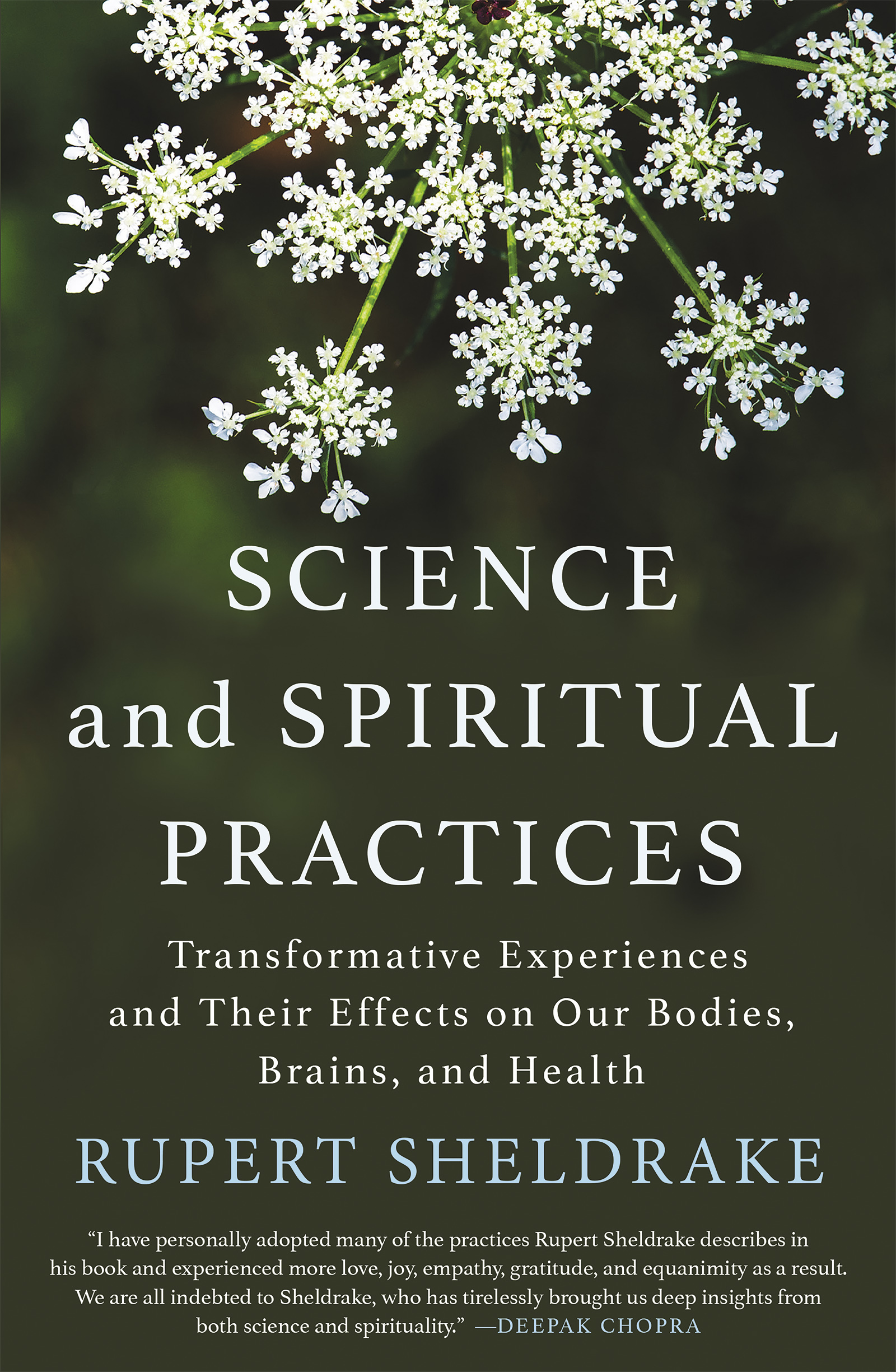Spiritual practices like meditation and mindfulness have scientific backing in reducing stress and improving mental well-being. These practices can positively impact brain function and emotional regulation.
Incorporating spiritual activities into daily routines can lead to improved overall health and a sense of inner peace. Researchers have found that engaging in practices like prayer and gratitude can enhance emotional resilience and foster a sense of connection with oneself and others.
The science behind spiritual practices highlights the profound effects they can have on both the mind and body, promoting holistic well-being and personal growth. By understanding the neurological and psychological mechanisms at play, individuals can harness the power of these practices to lead more fulfilling and balanced lives.

Credit: easternchristiansupply.biz
The Interplay Of Science And Spirituality
Science and spirituality are often seen as separate entities, but there is an underlying connection between the two. Spiritual practices have been backed by scientific research, shedding light on the physiological and psychological benefits they offer. This interplay between science and spirituality reveals the deeper understanding and appreciation of the human experience.
Bridging Two Worlds
Spirituality and science have long been viewed as two separate worlds, but recent research has shown that these two seemingly disparate fields may have more in common than initially thought. In fact, many spiritual practices have been found to have tangible benefits on the mind and body, and science is beginning to uncover the mechanisms behind these benefits. By bridging the gap between science and spirituality, we can gain a deeper understanding of the world around us and improve our overall well-being.Historical Perspectives
Throughout history, various cultures have utilized spiritual practices for their healing properties. For example, Ayurvedic medicine, which originated in India thousands of years ago, incorporates practices such as meditation, yoga, and herbal remedies to promote physical and mental health. Similarly, traditional Chinese medicine utilizes acupuncture, herbal medicine, and qigong to balance the body’s energy and promote healing. While these practices were developed long before modern science, they have stood the test of time and continue to be used today.The Science Behind Spiritual Practices
Despite their historical use, it wasn’t until recently that science began to investigate the mechanisms behind spiritual practices. Research has shown that practices such as meditation and yoga can have a profound impact on the brain and body. For example, meditation has been found to increase gray matter in areas of the brain associated with emotion regulation and attention, while also reducing stress and anxiety. Similarly, yoga has been found to improve flexibility, balance, and strength, while also reducing inflammation and improving mood. By understanding the science behind these practices, we can better utilize them to improve our overall health and well-being.The interplay between science and spirituality is a fascinating and complex topic, one that is still being explored by researchers around the world. By bridging these two worlds, we can gain a deeper understanding of ourselves and the world around us, while also improving our overall health and well-being. Whether you practice meditation, yoga, or another form of spirituality, there is no denying the benefits that these practices can have on both the mind and body.
Credit: www.amazon.com
Biological Basis Of Meditation
Meditation is a practice that has been scientifically proven to bring about changes in the brain and body. Let’s delve into the biological basis of meditation and explore the neurological changes and the impact on the stress response and hormones.
Neurological Changes
Meditation has been found to alter brain wave patterns and increase the thickness of the prefrontal cortex. This leads to improved attention, concentration, and emotional regulation.
Moreover, it activates the brain’s default mode network, associated with self-referential thoughts and mind-wandering, which results in enhanced self-awareness and empathy.
Stress Response And Hormones
Engaging in meditation practices triggers the relaxation response in the body, reducing the production of stress hormones such as cortisol and adrenaline.
Furthermore, it stimulates the release of feel-good neurotransmitters like serotonin and dopamine, promoting feelings of well-being and happiness.
Rituals And The Brain
Discover the fascinating connection between rituals and the brain, unraveling the science behind spiritual practices. Explore how these ancient traditions impact our neural pathways, offering insight into the profound effects of spiritual rituals on our well-being and overall mental health.
Neuroscience Of Ritualistic Behavior
Rituals have been an integral part of human societies for centuries, serving various cultural, religious, and spiritual purposes. But have you ever wondered why these rituals hold such significance? The answer lies in the fascinating relationship between rituals and the brain.
Neuroscience research has shown that engaging in ritualistic behavior activates certain areas of the brain associated with reward and motivation. This activation releases feel-good chemicals like dopamine, which contribute to a sense of pleasure and satisfaction.
Moreover, rituals often involve repetitive actions, which can induce a state of focused attention and help calm the mind. This focused attention has been linked to increased mindfulness and a reduction in stress and anxiety.
By understanding the neuroscience behind ritualistic behavior, we can appreciate how these practices have a profound impact on our well-being.
Cognitive Benefits Of Structured Practices
Structured spiritual practices, such as meditation, prayer, or chanting, offer more than just a sense of ritual. These practices have been found to provide significant cognitive benefits.
Research has shown that regular meditation can enhance brain function, improve attention span, and increase overall cognitive performance. It has been associated with changes in brain structure, including increased gray matter density in regions responsible for learning, memory, and emotional regulation.
In addition to meditation, engaging in structured practices like prayer or chanting can have a calming effect on the mind. These activities stimulate the prefrontal cortex, the part of the brain responsible for rational thinking and decision-making. As a result, individuals who regularly participate in such practices may experience improved focus, clarity, and emotional well-being.
By incorporating these structured practices into our daily lives, we can harness the cognitive benefits they offer and cultivate a more balanced and focused mind.

Credit: www.counterpointpress.com
The Power Of Prayer Analyzed
Examining the science behind spiritual practices, this analysis delves into the transformative impact of prayer. Exploring the tangible benefits of this age-old tradition, the blog sheds light on the profound effects of prayer on mental and emotional well-being.
Studies On Healing And Prayer
Scientific studies have increasingly explored the fascinating connection between healing and prayer. These studies aim to understand the effectiveness of prayer as a complementary practice to traditional medical treatments. The findings suggest that prayer can have a positive impact on the healing process, both physically and emotionally.One notable study conducted by researchers at Duke University Medical Center examined the effects of intercessory prayer on cardiac patients. The study involved dividing participants into three groups: one receiving intercessory prayer, one receiving direct contact from the intercessors, and one control group. The results showed that the group receiving intercessory prayer had significantly fewer complications and improved overall well-being compared to the control group.Another study published in the Journal of Behavioral Medicine explored the effects of prayer on post-surgical recovery. The researchers found that patients who received prayer showed a faster recovery rate, experienced less pain, and had fewer complications compared to those who did not receive prayer.These studies provide scientific evidence supporting the notion that prayer can contribute to the healing process. While the exact mechanisms behind these effects are not yet fully understood, the results suggest that prayer may have a profound impact on physical and emotional well-being.Psychological Effects Of Prayer
Beyond its potential healing properties, prayer also has significant psychological effects. Engaging in prayer can promote a sense of calm, reduce stress, and enhance overall mental well-being.Prayer has been found to activate the relaxation response in the body, leading to a decrease in heart rate and blood pressure. This physiological response helps to alleviate stress and create a sense of inner peace. Additionally, prayer provides individuals with a sense of purpose and meaning, fostering a positive outlook on life.Furthermore, prayer can serve as a form of meditation, allowing individuals to focus their thoughts and quiet their minds. This meditative state promotes mindfulness and self-reflection, leading to increased self-awareness and emotional resilience.Incorporating prayer into daily life can also enhance social connections and foster a sense of community. Praying together with others can create a shared sense of spirituality and provide a support system during challenging times.In conclusion, the power of prayer extends beyond its spiritual significance. Scientific studies demonstrate its potential to aid in healing and improve emotional well-being. By understanding the science behind spiritual practices such as prayer, we can fully appreciate the profound impact they can have on our lives. So, let us embrace the power of prayer and explore its potential in our own journeys towards health and wholeness.Consciousness And Connectedness
Consciousness and connectedness are integral aspects of spiritual practices, influencing the way individuals perceive themselves and their connection to the world around them. Exploring the concept of consciousness unveils the profound impact it has on spiritual experiences and personal well-being.
Exploring Consciousness
Consciousness, often described as the awareness of one’s existence and surroundings, is a fundamental element of spiritual practices. It encompasses the ability to perceive, comprehend, and experience the world beyond the physical senses, delving into the depths of human cognition and perception.
Feeling Of Oneness And Its Implications
The feeling of oneness, a prevalent theme in spiritual practices, entails a deep sense of interconnectedness with all living beings and the universe. This profound sensation holds significant implications for individuals, fostering empathy, compassion, and a heightened awareness of the collective human experience.
Psychedelics And Spiritual Experiences
IntroductionDiscover the intriguing connection between psychedelics and spiritual experiences, delving into the realm of altered states and scientific research.
Altered States and Their SignificanceAltered States And Their Significance
Altered states of consciousness play a crucial role in spiritual practices.
Research on Psychedelics and SpiritualityResearch On Psychedelics And Spirituality
Scientific studies are uncovering the profound impact of psychedelics on spiritual experiences.
Yoga: Beyond Physical Postures
Yoga is more than just physical postures. It involves spiritual practices that have a scientific basis. By incorporating these practices into our lives, we can enhance our overall well-being and achieve a deeper sense of inner peace and harmony.
Mind-body Connection
Yoga is not just about physical movements; it involves a deep mind-body connection.
Physiological Impacts Of Yoga
Yoga has profound effects on our physiological well-being.
It helps reduce stress, improve flexibility, and enhance overall health.
Fasting And The Human Body
Fasting can have profound effects on the human body, impacting both physical and mental well-being.
Historical And Cultural Significance
Throughout history, various cultures and religions have practiced fasting as a means of spiritual purification and self-discipline.
Health Benefits From A Scientific Lens
Fasting triggers autophagy, a process where cells remove damaged components, promoting cellular repair and longevity.
Impact Of Spirituality On Mental Health
Spirituality has a profound impact on mental health, with scientific research supporting the positive effects of spiritual practices. Engaging in activities such as meditation and prayer can reduce stress, anxiety, and depression, contributing to overall well-being. These practices offer a sense of purpose and connection, promoting emotional resilience and inner peace.
Coping With Life’s Challenges
Spirituality provides emotional support during difficult times.
Long-term Mental Health Outcomes
Regular spiritual practices lead to improved mental well-being over time.
Measuring The Immeasurable
Spiritual practices have long been considered immeasurable, but recent advancements in science and technology have opened new avenues for understanding and quantifying their effects. The convergence of spirituality and science poses unique challenges, yet the emergence of innovative technologies and methodologies is paving the way for groundbreaking research in this domain.
Challenges In Scientifically Studying Spirituality
Measuring the impact of spiritual practices presents inherent complexities. The subjective nature of spiritual experiences, diverse cultural interpretations, and the deeply personal aspects of spirituality pose significant challenges for researchers.
Moreover, the traditional scientific approach, which relies heavily on observable and measurable data, may struggle to capture the holistic impact of spiritual practices on individuals and communities.
Emerging Technologies And Methodologies
Advancements in neuroimaging techniques, such as functional magnetic resonance imaging (fMRI) and electroencephalography (EEG), offer unprecedented insights into the neurological correlates of spiritual experiences. These technologies enable researchers to observe and analyze the brain activity associated with meditation, prayer, and other spiritual practices.
Furthermore, the integration of qualitative research methods, including ethnography and phenomenology, allows for a more nuanced understanding of the subjective dimensions of spirituality. By embracing a multidisciplinary approach, scientists can leverage emerging methodologies to explore the intricate interplay between spirituality, psychology, and physiology.
Frequently Asked Questions
What Are The Benefits Of Spiritual Practices?
Engaging in spiritual practices can reduce stress, promote inner peace, and enhance overall well-being. These practices also foster a sense of community and connection, leading to improved mental and emotional health.
How Can Spiritual Practices Impact Mental Health?
Spiritual practices such as meditation and prayer have been shown to reduce symptoms of anxiety and depression. These activities promote mindfulness and self-reflection, leading to a more positive outlook on life.
Are There Scientific Studies Supporting Spiritual Practices?
Yes, numerous studies have demonstrated the positive effects of spiritual practices on physical and mental health. Research has shown that practices like meditation can lead to changes in the brain that support overall well-being.
Can Anyone Benefit From Spiritual Practices?
Absolutely, spiritual practices are accessible to everyone regardless of their religious or spiritual beliefs. These practices offer tools for self-care, personal growth, and emotional support, making them beneficial for people from all walks of life.
Conclusion
Spiritual practices have been around for centuries and have been found to have numerous benefits for mental, emotional, and physical health. From meditation to prayer and yoga, these practices have been shown to reduce stress, increase focus, and improve overall well-being.
The science behind these practices shows that they can have a profound impact on the brain and body, leading to a more balanced and fulfilling life. Incorporating spiritual practices into your daily routine can be a powerful tool for personal growth and transformation.


